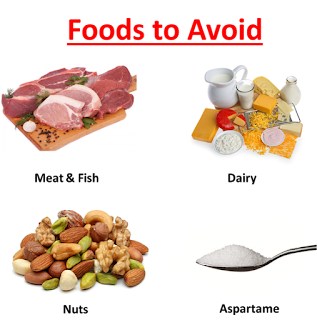Causes
- A defective gene (genetic mutation) causes PKU, which can be mild, moderate, or severe. In a person with PKU, this defective gene causes a lack of deficiency of the enzyme that is needed to process phenylalanine, an amino acid.
- A dangerous buildup of phenylalanine can develop when a person with PKU eats protein-rich foods, such as milk, cheese, nuts, or meat, and even grains such as bread and pasta, or eats aspartame, an artificial sweetener. This build of phenylalanine results in damage to nerve cells in the brain.
Inheritance
- For a child to inherit PKU, both the mother and father must have and pass on the defective gene. This pattern of inheritance is called autosomal recessive.
 |
| Autosomal Recessive inheritance pattern |
- It's possible for a parent to be a carrier- to have the defective gene that causes PKU, but not have the disease. If only one parent has the defective gene, there is no risk of passing PKU to a child, but it is responsible for the child to be a carrier.
- Most often, PKU is passed to children by two parents who are carriers of the disorder but don't know it.
Risk factors
Risk factor for inheriting PKU include:
- Having both parents with a defective gene that causes PKU: Two parents must pass along a copy of the defective gene for their child to develop the condition.
- Being of certain ethnic descent: The gene defect that causes PKU varies by ethnic groups and it is less common in African- Americans than in other ethnic groups.




Comments
Post a Comment